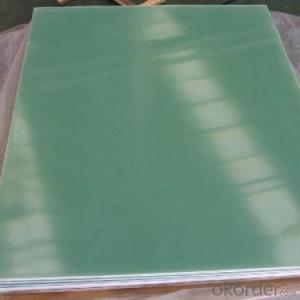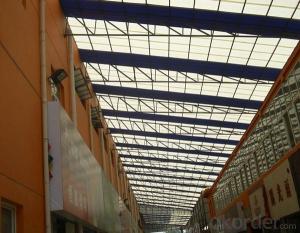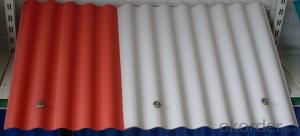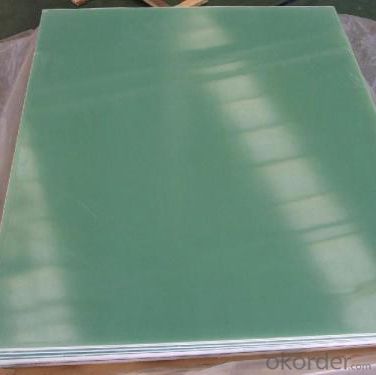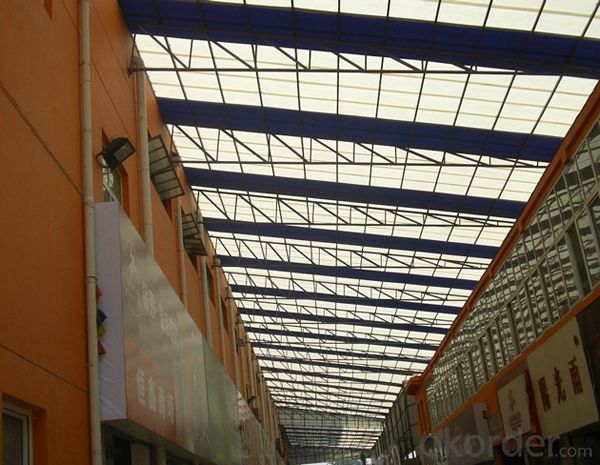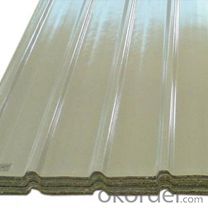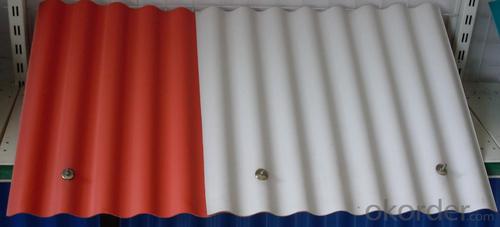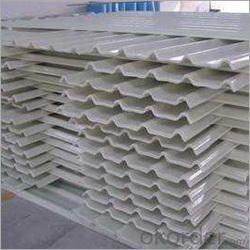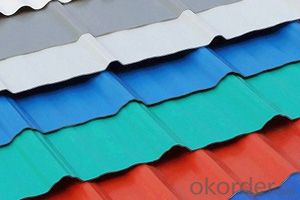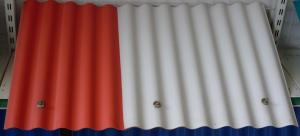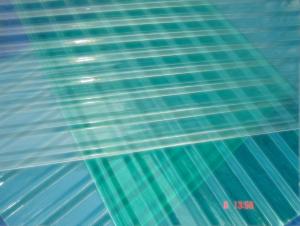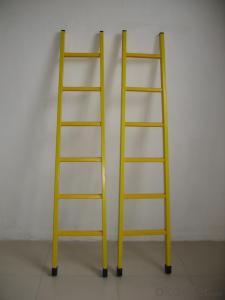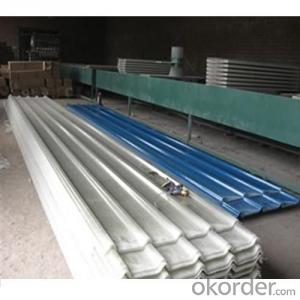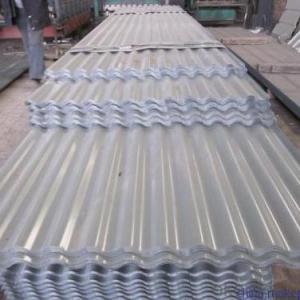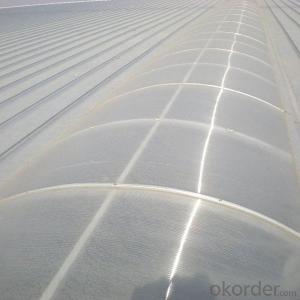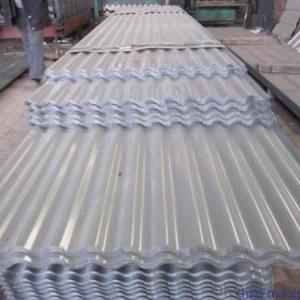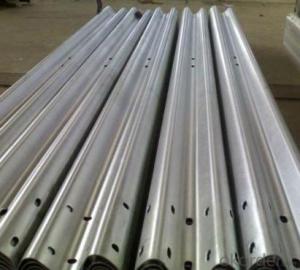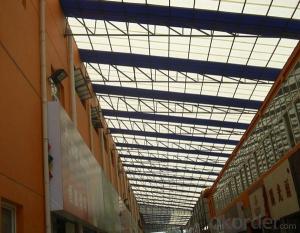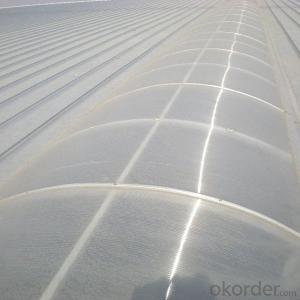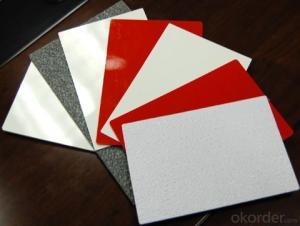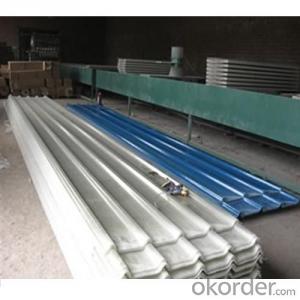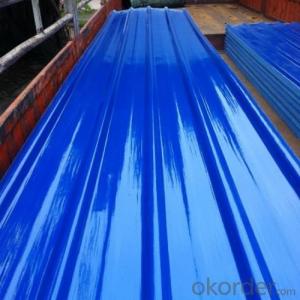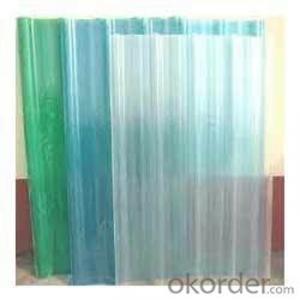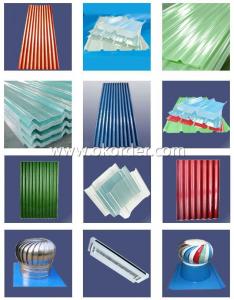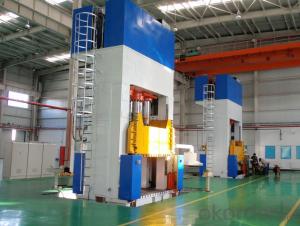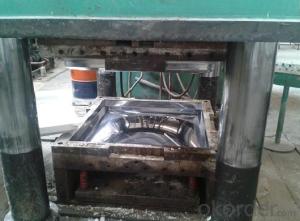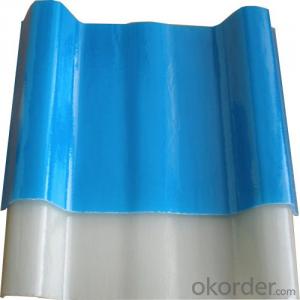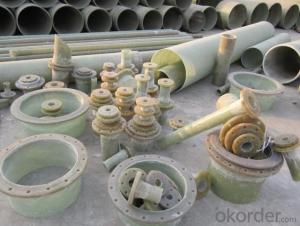FRP Roofing Panel - Non-Conductive Deck Fiberglass Board Lightweight
- Loading Port:
- Shanghai
- Payment Terms:
- TT OR LC
- Min Order Qty:
- 100 m²
- Supply Capability:
- 80000 m²/month
OKorder Service Pledge
OKorder Financial Service
You Might Also Like
Specification
PRODUCT DESCRIPTION
Fiberglass (FRP/GRP) products offer many advantages compared to traditional materials like stainless steel, concrete, or wood. and Fiberglass composites are very lightweight conpared other material, therefore, the weight of the component may be significantly reduced without compromising the strength of the component part. With its extreme corrosion resistance, fiberglass products are the most cost effective over a lifetime for many applications. They also provide high strength, low weight, ability to withstand high temperatures, and customization capabilities.
FEATURES
1.corrosion resistance no rust, no maintenance, long service life.
2.lightweight, high strength pultrusion process molding FRP profiles have high glass fiber content (60%), the one way than intensity and stiffness is quite prominent, the density of glass fiber reinforced plastic is only about a quarter of the steel, light weight, very easy to handle, so as to reduce the handling fee.
3..Anti-fatigue high anti- fatigue strength, allowing repeated bending without permanent deformation.
4.anti-aging select highquality FRP pultrusion profiles, the service life of the product can reach more than 20 years, and in all the pultrusion FRP profiles were added in the formula of an-uv agent in order to get the best anti-uv effect.
5.excellent electromagnetic performance it has excellent electrical insulation, electrical, magnetic and electric spark can be used in risk conduction.
SPECIFICATION
Product | Item | Unit | Value |
FRP sheet | Thickness | mm | 1.0-2.5 |
Width | mm | <2500< span=""> | |
Length | mm | Customized or produce in roll | |
Density | g/cm3 | 1.45 | |
Tensile strength | MPa | 124 | |
Bending strength | MPa | 195.8 | |
Compression strength | MPa | 117 | |
Shear strength | MPa | 108 | |
Impact strength | KJ/m2 | 113 | |
FRP composite sheet | Core veneer thickness | mm | 20-100 |
FR4 thickness | mm | 1.2-2.5 | |
Width | mm | <2500< span=""> | |
Length | mm | <8000< span=""> | |
Thermal conductivity | Kcol/m2 | 0.57-0.117 |
PICTURES
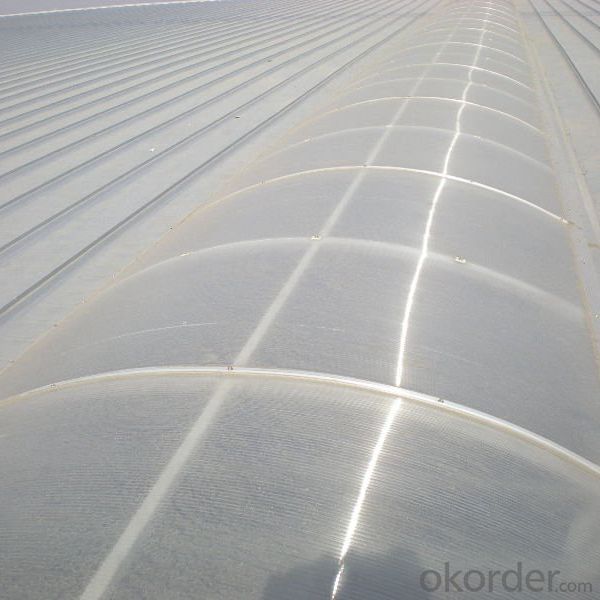
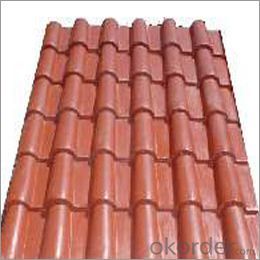
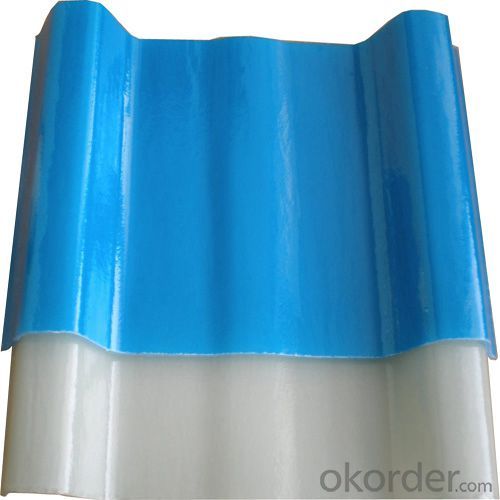
- Q: Are FRP roofing panels noisy during rainfall?
- Compared to other roofing materials, FRP (Fiberglass Reinforced Panels) roofing panels do not generate significant noise during rainfall. The level of noise is predominantly influenced by the thickness and quality of the panels, along with the installation method employed. Nevertheless, it is important to note that raindrops hitting any roofing material can be heard from inside the building, though generally, it produces a soft and comforting sound. Furthermore, when the roof is adequately insulated and a ceiling is in position, the noise level is further diminished. All in all, FRP roofing panels are generally recognized for their lack of excessive noise during rainfall.
- Q: Can FRP roofing panels be used for covered walkways in residential complexes or housing estates?
- Yes, FRP roofing panels can indeed be used for covered walkways in residential complexes or housing estates. FRP (Fiberglass Reinforced Plastic) roofing panels are a versatile and durable material that is commonly used in various construction applications, including walkway covers. One of the main advantages of using FRP roofing panels for covered walkways is their lightweight nature. Compared to traditional roofing materials like metal or concrete, FRP panels are significantly lighter, making them easier to install and transport. This is especially beneficial for residential complexes or housing estates where the construction process needs to be efficient and cost-effective. Additionally, FRP roofing panels are known for their excellent strength and durability. They are highly resistant to weather elements such as UV rays, moisture, and extreme temperatures. This means that they can withstand outdoor conditions over a long period without significant damage or degradation. For covered walkways in residential complexes, this durability ensures that the walkways remain safe and functional for residents, even during harsh weather conditions. Another advantage of FRP roofing panels is their versatility. They come in various sizes, colors, and textures, allowing for customization to match the architectural style and design of the residential complex or housing estate. They can also be easily shaped and molded to fit specific walkway configurations and requirements. In addition to their physical properties, FRP roofing panels are also known for their low maintenance requirements. Unlike other roofing materials, FRP panels do not corrode, rust, or require regular painting. This reduces the need for costly repairs and maintenance, making them a cost-effective choice for covered walkways in residential complexes. Overall, FRP roofing panels are a suitable and practical choice for covered walkways in residential complexes or housing estates. Their lightweight nature, durability, versatility, and low maintenance requirements make them an excellent option to ensure safe and aesthetically pleasing walkways for residents.
- Q: Are FRP roofing panels suitable for solar panel installations?
- Yes, FRP (Fiberglass Reinforced Plastic) roofing panels are suitable for solar panel installations. FRP panels offer several advantages for solar installations, including their durability, lightweight nature, and resistance to corrosion. They can provide a reliable and long-lasting foundation for solar panels, ensuring efficient energy production and protection against weather elements.
- Q: Can FRP roofing panels be used for both residential and commercial skylights?
- Yes, FRP (Fiberglass Reinforced Plastic) roofing panels can be used for both residential and commercial skylights. FRP panels are lightweight, durable, and have excellent light transmission properties, making them suitable for skylights in both residential and commercial settings. They are resistant to UV rays, weathering, and impact, which ensures long-lasting performance and minimal maintenance. Additionally, FRP panels can be customized in terms of size, shape, and color, allowing for flexibility in design and meeting the specific requirements of any residential or commercial skylight project.
- Q: Are FRP roofing panels resistant to yellowing over time?
- Yes, FRP roofing panels are resistant to yellowing over time.
- Q: Can FRP roofing panels be used for retail stores?
- Yes, FRP (Fiberglass Reinforced Plastic) roofing panels can be used for retail stores. FRP roofing panels are commonly used in commercial and industrial buildings due to their durability, versatility, and cost-effectiveness. They are lightweight, easy to install, and can withstand extreme weather conditions, making them suitable for retail stores as well. These panels are available in various colors and designs, allowing retailers to choose a style that aligns with their brand image. Additionally, FRP roofing panels are resistant to UV rays, chemicals, and corrosion, ensuring a long-lasting solution for retail establishments.
- Q: Are FRP roofing panels suitable for cold climates?
- Yes, FRP (Fiberglass Reinforced Plastic) roofing panels are suitable for cold climates. FRP panels have excellent thermal insulation properties, which help to maintain a stable and comfortable indoor temperature. They are designed to withstand extreme temperatures, including freezing temperatures, without cracking or warping. Additionally, FRP panels have a high strength-to-weight ratio, making them resistant to heavy snow loads and strong winds commonly found in cold climates. The durable and weather-resistant nature of FRP panels ensures that they can effectively protect the building against the harsh elements. Furthermore, FRP panels are resistant to corrosion and do not absorb moisture, which prevents the growth of mold and mildew in cold and damp conditions. Overall, FRP roofing panels are a reliable and suitable choice for cold climates due to their thermal insulation, strength, and durability.
- Q: Are FRP roofing panels suitable for both hot and cold climates?
- FRP roofing panels are appropriate for both hot and cold climates. In hot climates, these panels have proven to be highly effective because they can endure high temperatures without warping or deteriorating. The material used in the panels has exceptional heat resistance, allowing them to withstand prolonged exposure to extreme heat and direct sunlight without significant damage. Additionally, many FRP panels have a UV protective coating that enhances their durability in hot climates. In cold climates, FRP panels are also suitable due to their strength and resistance to cracking or breaking in low temperatures. The fiberglass reinforcement in the panels provides stability and prevents them from becoming brittle in freezing temperatures. Furthermore, FRP panels offer good insulation, maintaining a stable indoor temperature and reducing heat loss during cold weather. However, it is important to consider that extreme weather conditions, such as very high or very low temperatures, can potentially affect the performance of FRP panels. In extremely hot climates, the panels may experience slight expansion, resulting in minor dimensional changes. Similarly, in extremely cold climates, there may be a minimal risk of contraction, causing slight changes in the panel's dimensions. Nevertheless, these changes are generally insignificant and do not significantly impact the overall effectiveness and suitability of FRP roofing panels for hot and cold climates. Proper installation and maintenance are crucial for the longevity and performance of FRP roofing panels in any climate. Regular inspection, cleaning, and adherence to the manufacturer's guidelines will ensure that the panels continue to function optimally, regardless of the climate they are exposed to.
- Q: Are FRP roofing panels resistant to warping or buckling?
- Yes, FRP (Fiber Reinforced Plastic) roofing panels are known for their high resistance to warping or buckling. The reinforced fibers within the panels provide structural stability, making them highly durable and less prone to deformation even under extreme weather conditions.
- Q: Do FRP roofing panels require a specific type of adhesive for installation?
- Yes, FRP roofing panels typically require a specific type of adhesive for installation. The adhesive used should be compatible with the specific type of FRP panel being installed and should provide strong bonding properties to ensure secure and long-lasting installation.
Send your message to us
FRP Roofing Panel - Non-Conductive Deck Fiberglass Board Lightweight
- Loading Port:
- Shanghai
- Payment Terms:
- TT OR LC
- Min Order Qty:
- 100 m²
- Supply Capability:
- 80000 m²/month
OKorder Service Pledge
OKorder Financial Service
Similar products
Hot products
Hot Searches
Related keywords
